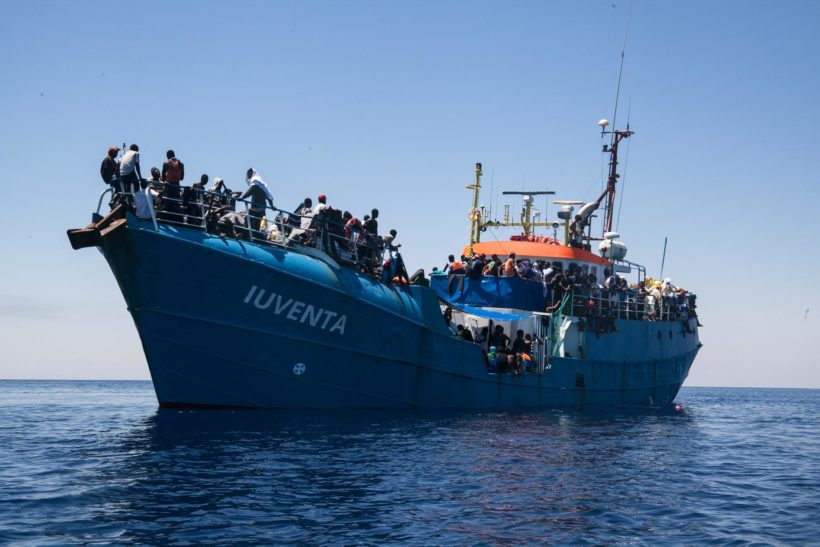At today’s hearing in the trial against the civil sea rescuers, the presence of renowned international trial observers was admitted by the court. After approval by all parties, they were allowed to attend the trial as observers for the first time.
Apart from that, another day of the trial has come to an end without any substantial progress. Since May of this year, the trial of 21 defendants, who face up to 20 years imprisonment for “aiding and abetting unauthorised immigration”, has not progressed beyond the first procedural steps.
The reason for this is that the public prosecutor’s office has so far been unable to fulfil its obligation to provide the necessary conditions for all defendants to participate in the trial. Recurrent procedural errors and the prosecution’s disregard for basic fair trial standards, such as the provision of adequate interpretation during interrogations of foreign defendants, have left the judge with no other option but to prolong the proceedings and to let appointments pass unused, in order to give the prosecution more time to rectify its errors.
These conditions are not only grounds for worries on the side of the defendants. Even the trial observers, who have so far only been able to observe the proceedings from the outside, are also concerned about the state of the proceedings. They fear that this will not only harm the defendants, but could also have wider consequences for fair justice throughout Europe.
Sascha Girke, Iuventa defendant: “We strongly welcome the fact that all 21 defendants, as well as all other parties involved, including the court, have agreed to the observation by this independent third party.“
Francesca Cancellaro, lawyer of the defense:“As far as we know, this is the first time that a court in Italy has allowed the presence of trial observers in a chamber hearing in order to give civil society the opportunity to be directly informed about what is happening in court. The publicity can contribute to a fair trial, which is a fundamental principle of democratic society that must be guaranteed. Transparency is important for the administration of justice because it is the difference between the rule of law and dictatorship: I am sure today’s decision will be a stimulus for other court decisions.










